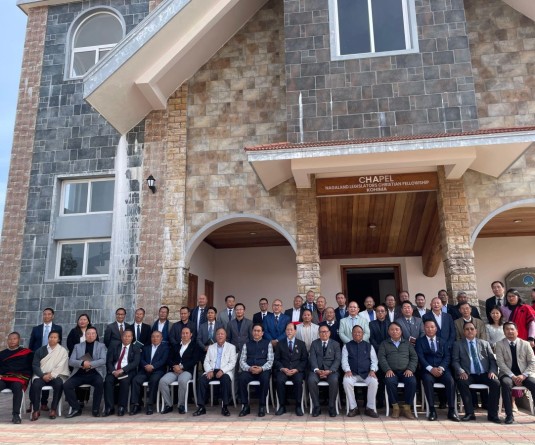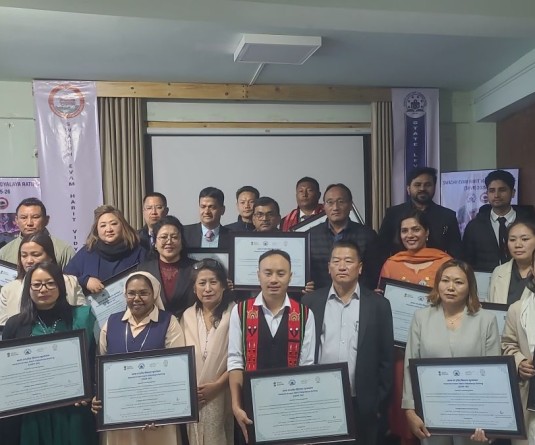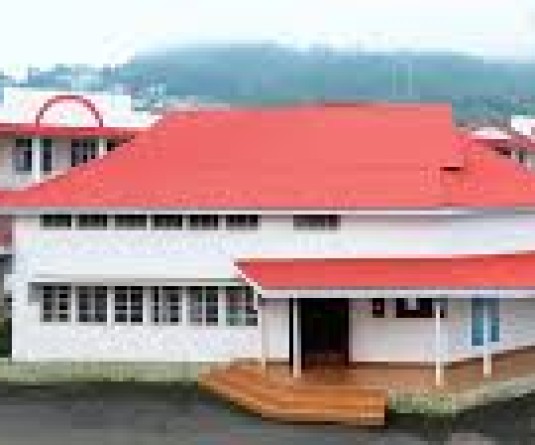
FNR public interaction in Kohima seeks way forward
Morung Express News
Kohima | April 28
“The need for interaction to reason out things together has become very pertinent today,” stated Dr. P Ngully moderating the open public interaction organised by the Forum for Naga Reconciliation (FNR) on April 28 at The Heritage, Kohima.
Today’s interaction was second in the series of year-long activities and open public interactions the Forum is organising as a part of its ‘Walking the Naga Day’ initiative under the tagline, “Reasoning Together."
The Kohima chapter explored on the possibilities of forgiveness, healing and reconciliation in order to take the Naga Concordant forward. The public was invited to provide constructive criticism and develop suggestions to empower the Naga Reconciliation process.
Besides, with a crucial juncture soon to be placed with talks of an early settlement of the Framework Agreement, the need to prepare Naga society for transition was also stressed during the public discussion.
“The struggle of the people must be examined honestly, correctly at regular time so that we are up to date in our response to a changing world. That’s what FNR is doing. Things have gone right but things have also gone wrong. The things that have gone wrong are going to destroy us unless we go deep enough to where things have gone wrong,” stated Niketu Iralu during the interaction.
The open discussion is one of the processes in examining the Naga people, its struggles in a new situation, he concurred.
Following up brief history on FNR by its Convenor Rev Dr Wati Aier, another member stated that in first part, the situation dictated the process “because we were responding to a crisis where our realities were being defined by factional violence.”
FNR was formed in such a situation when the violence started decreasing and it created a vacuum. The ‘powers that be’ took charged of that vacuum and the initiatives were lost, further elaborated Dr. Aküm Longchari. However, pointing out that the reconciliation process is not confined to ending violence alone, he said, “It needs to go to healing, to forgiveness, to reconciliation.”
Dr Longchari further said that Naga’s biggest struggle at the present juncture is against fear which is generating a sense of suspicion and mistrust.
“It is our struggle against fear that we are comfortable where we are though we don’t like where we are,” he noted adding that the Nagas need to go beyond big meetings and really discuss with one another “to identify issues that need to be addressed, to share our hopes and dreams as well, and to be able to also define our fear…”
It will require every Naga individual to come together to move towards healing and forgiveness, he added.
Taking forward the discussing,former President of the Naga Mothers’ Association Neidonuo Angami expressed that a wrong committed should never be forgotten even if forgiven. “We should not forget what has gone wrong. If we forget, we will continue to commit the same mistakes,” she added.
During the interaction Jonas Yanthan, of the Lotha Hoho pointed out that there is a gap between the underground and the public where the aspirations of the two are often in conflict. “Our Naga society does not have a body that can interlink with other bodies,” he said.
In this regard, Rev. Dr. Aier stressed on the strengthening of the Naga identity but it should not be at the expense of other identities.
“Identity implies a boundary. This identity though implies a boundary, it has to be permeable. Naga identity does not lie within the borders. Naga identity transcends borders,” he said indicating the political possibilities without the confines of the borders.
While expressing confidence in the FNR, Vengota Nakro, a retired government servant asked if FNR have any voice in the agreement that is to come in the near future or in policy decisions.
Answering Nakro’s questions, Historian Visier Sanyü stated that FNR is in the arena of moral and spiritual space. “Therefore it will have everything to do with agreements. In that sense FNR will have to prepare the people on how we will face the agreement if there is violence between factions, or how Nagas are going to face it as a result of the agreement, that is the work of FNR and you.”
The actual political agreement, the clauses and the contents, he opined, will have nothing to do with FNR as it will not be invited to sit in a round table in the agreement.
Reminding of the agreements signed in the past which have often led to some form of violence, he said, “We can minimize that violence and killings if we work something to prepare for that.”
While things can go wrong in any struggle or enterprise, Niketu Iralu noted that every single Naga has to decide on their responsibilities in the reconciliation process. “We must start to do today what we have not done for a long time.” remarked Niketu. The FNR next public interaction will be held in first week of May in New Delhi.






